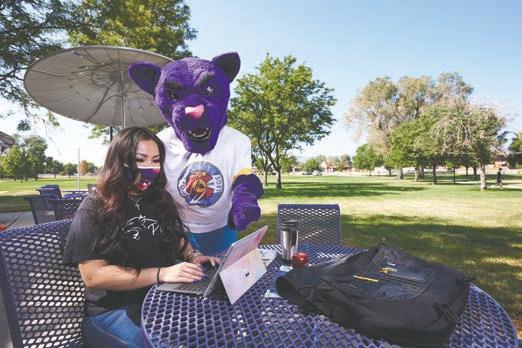
6 minute read
RENAISSANCE SECONDARY SCHOOL
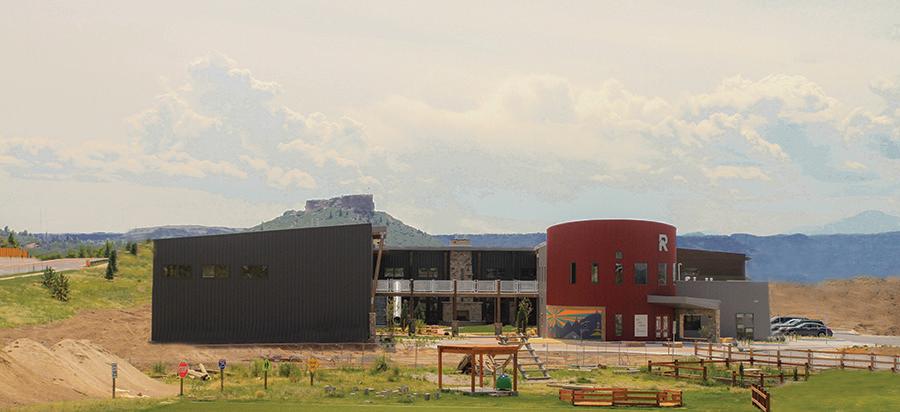

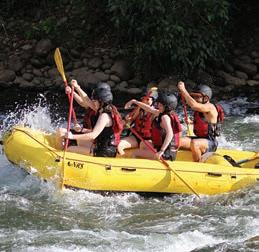
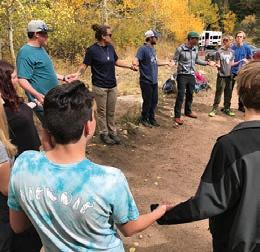
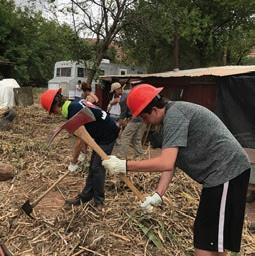
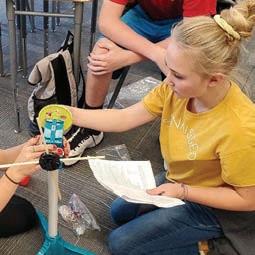
Deeper Learning Schools Prepare Students Better For College, Careers, And Life
The fastest growing job sectors in today’s economy are those that require problem solving and critical thinking skills, yet very few schools are preparing students adequately for these jobs.
A recent national survey published by Achieve, a non-profit education advocacy organization, found that 62% of employers feel that public high schools aren’t adequately preparing graduates for jobs in the modern economy. Even worse, 78% of college faculty surveyed believe schools aren’t preparing students for college.
According to the results of the Programme for International Student Assessment (PISA) exam, one in six American students are unable to solve problems that require thinking ahead or applying content knowledge to an unfamiliar setting.
Deeper Learning Schools Focus on Problem Solving
A group of innovative schools is aiming to change these dismal statistics by teaching students to think critically and solve complex problems. “Deeper Learning” schools, like the Renaissance schools in Castle Rock, provide research-based instructional practices that foster deeper learning and better outcomes for students. Expeditionary Learning and project-based learning are examples of deeper learning practices in schools.
Renaissance Secondary School, a “deeper learning” school, organizes it’s curriculum through learning expeditions - units of study that allow students to “dig deep” into compelling and relevant topics. Often interdisciplinary in nature, learning expeditions ensure students gain knowledge and skills by working to investigate and respond to an engaging and complex question, problem, or challenge.
Deeper Learning in Action
Last year, Eighth grade students at Renaissance Secondary mastered state content standards and learned problem solving skills through their expedition ‘ It’s All Connected.’ Eighth grade teachers collaborated to teach both humanities and science standards by exploring the concept of power.
Students learned about the science of power by designing, building, and testing wind turbines, utilizing the school’s state-of-the-art Innovation Lab equipment. Students also mastered relevant humanities standards as they investigated government policies related to power usage.
Students chose to demonstrate their learning by inventing a power saving device that improves people’s lives, or by proposing a revision to existing Castle Rock public policy related to sustainable power usage. As with most learning expeditions at Renaissance, the ‘It’s All Connected’ expedition concluded with a presentation of learning. Students built communication skills by presenting their final products to community members at a student-led ‘Power Night.’
“Whenever possible, student learning should have an impact beyond the walls of the school.
When students prepare to share their learning with an authentic audience, they’re more invested in creating a high-quality product. When the learning also benefits the community, we all win,” says Amy Stuart, Head of School at Renaissance Secondary. “When students understand why their learning matters, they’re more engaged…. And research tells us that students retain more of what they learn when they understand the ‘why’ behind it.”
In fact, a growing body of research suggests that deeper learning schools like Renaissance are better at preparing students for college, careers, and life.
One study, by the American Institutes for Research, found that deeper learning schools like Renaissance have stronger academic outcomes, better attendance and student behavior, and higher rates of college attendance than more conventional schools.
Learning expeditions at Renaissance are designed to teach the state content standards, but rather than relying on lectures and worksheets, learning expeditions often take students outside of the classroom and/or bring in experts. Fieldwork may include collecting data, gathering information, or interacting with experts in the field related to their unit of study. Students at Renaissance regularly engage with the community, including having interviewed residents in an area highly impacted by the I-70 expansion, and with experts, including brain injury and concussion experts, and hearing from judges and other legal professionals. Bringing in experts rather than relying on teacher expertise alone contributes to a rich, authentic understanding of content.
Prior to the COVID-19 pandemic, high school students learning about ecology in the expedition “Fish Stories” extended their learning over Spring Break in Costa Rica. Some students traveled to Costa Rica to engage in real-world work at a research station, in addition to becoming immersed in the language and culture.
“Too often, students experience content at only a surface level. The real challenge is to teach content in a way that students deeply understand, so that they can apply what they’ve learned in new situations,” explains Ms. Stuart.
Students at Renaissance agree. Emily K., a 2020 Renaissance graduate, says “After I made the transition to Renaissance, I now know how much school can teach me beyond just the quadratic formula. This school has taught why the quadratic formula works. It has taught me how school subjects are intertwined and shouldn’t be separated.”
High school students in Renaissance’s “Who Killed Patrick Starr?” expedition walked into their classroom to discover a dead “body,” (a mannequin) on the floor. The makeshift crime scene was taped off, and students had to comb through the evidence to solve the crime. In addition to problem-solving skills, students learn about blood-typing, perform DNA extractions, identify unknown substances, and master other science standards as they work together to analyze evidence.
Colleges Want More
Research supports that schools like Renaissance, where students master academic content, communicate and collaborate effectively, think critically, and become lifelong learners, are preparing students for today’s constantly changing workforce. These schools also provide opportunities for students to distinguish themselves when applying to college. Pairing rigorous academic experiences with concurrent enrollment courses at local colleges further allow students to graduate not only college ready, but sometimes with a year or more of college credit prior to leaving high school.
Renaissance 2020 graduate Colby C. reported that colleges he visited were thrilled to hear about him attending a small, expeditionary learning high school. Attending a small school dedicated to deeper learning really helped him stand out in the admissions process, where admissions officers are flooded with applicants from large, conventional schools.
Dean of Undergraduate Admissions at Yale University, Jeremiah Quinlan,
explains: “Yes, we want students who have achieved in and out of the classroom, but we are also looking for things that are harder to quantify, [like] authentic intellectual engagement and a concern for others and the common good.”
Renaissance has a strong focus on service learning. “Service learning at Renaissance teaches students to take action in their communities and the world; it’s an essential component of their school experience,” says Ms. Stuart.
Students and teachers at Renaissance partnered with the Design for Change organization to integrate service into their learning experiences. Students worked on projects related to the
United Nations Sustainable Development Goals of 2030, including ‘no poverty,’ ‘life below water’ and ‘zero hunger.’ Some students developed a mental health focused app aligned with the goal of ‘good health and wellbeing,’ while others wrote, produced, and recorded a song for their project. Multiple groups from Renaissance were selected to represent the U.S. at the Design for Change Children’s Global Summit in Rome.
Renaissance Secondary is accepting enrollment applications for the 2021-2022 school year for Grades
6-12. Learn more at www.rensec.org . Interested families may attend a Virtual Information Session or a tour. Families should RSVP at www.rensec.org for a tour (Fridays at 3:30PM) and/or to receive the link for a virtual session. There are upcoming information sessions January 28th and February 18th.





